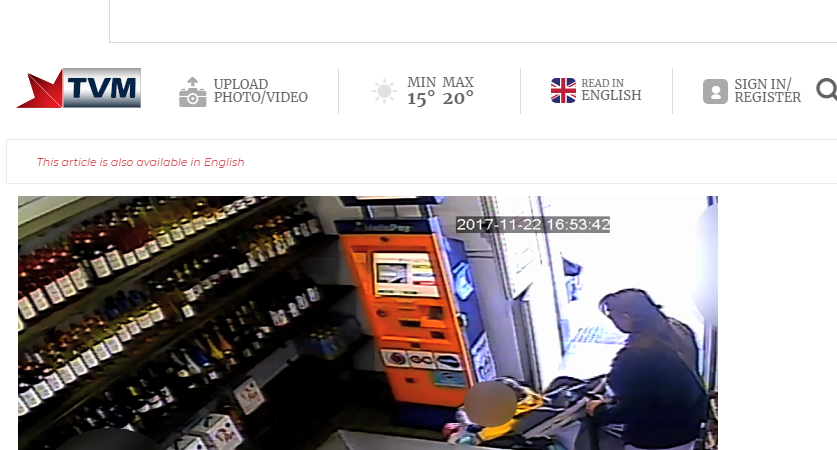TVM has done a good job of exposing as a hoax the story based on claims made on social media that immigrants in Birzebbuga were impeded from stealing a toddler from a pushchair.
They sought CCTV footage showing that nothing of the sort had occurred. The claims were also refuted by the police who investigated this case.
Yet the fact that these wild, unverified claims go viral is itself a telling sign of how Maltese society is reacting to the presence of people of a different ethnic origin, in this case Africans.
The perception of “others” living in the midst of our society as child kidnappers is an enduring myth, which resurfaces in different moments in history.
In the Middle Ages, Jewish people were accused of killing Christian children to have human blood for matzos at Passover. The age-old myth that Romanies are in the habit of kidnapping white children also entered popular folklore, and has persisted to the present day. Both myths were a driving force for anti-Semitism and racism which ultimately led to the Holocaust.
These myths survived to modern times. In 2013, in Ireland two Romani children were taken away from their respective families simply because they were pale skinned and blue-eyed. In both cases, it transpired that the children were indeed being raised by their biological parents and had not been kidnapped.
It is no surprise that, in Malta, African migrants fit the profile of the child snatcher. Unlike thousands of other foreigners living here, they are distinctive by their skin color and more likely to be roaming around the streets because of the precarious existence of most as asylum seekers.
In the popular imagination child snatching represents the worse possible threat to society; and it is therefore a powerful motif to depict others as dangerous. But, in reality, it is the children of migrants, rather than Maltese children, who are at risk of being abducted and trafficked.
In 2016, 10,000 unaccompanied migrant children went missing in the European Union. The fact that child migrants in Malta are not granted citizenship increases the risk of them falling off the radar and being exposed to the dangers of human trafficking.
The UNHCR has repeatedly recommended that “in order to avoid exposing children to the risk of statelessness, Malta should ensure that birth registration is carried out for all children born in Malta, regardless of the migrant status of the parents or their lack of documentation”.
President Marie Louise Coleiro Preca described this as a “shame”.and has insisted that “all that can be done, must be done, to prevent vulnerable children from going missing, since unaccompanied migrant children are entirely dependent on our governments, our authorities and our policies – they are entirely dependent on us”.
It remains hard to understand why a government that has opened up the labour market for thousands of foreign workers, and whose Prime Minister actively promotes the sale of citizenship to the rich, is so reluctant to grant Maltese citizenship to child migrants.
Other areas such as labour market mobility, education, family reunion, access to nationality and political participation of Third Country Nationals must be prioritised in integration strategies.
This does not mean that immigration does not come with problems. Immigrants are generally poorer and often traumatised, having experienced war, extreme poverty and in many instances slavery and human trafficking.
Immigrants living a precarious existence in our black economy may be easy recruits for organised crime. This is why this precariousness must be actively combated, especially in booming sectors of the economy like construction.
At the same time, it is also important for migrants to feel included in our local communities. Local councils should be more pro-active in fostering a two-way dialogue that dispels myths.
One basic precondition for such a dialogue to occur is properly funded policing to give local communities a sense of serenity that they are living within the realm of the rule of law.
Unfortunately the kind of policing we have seen in the past months has veered on racial profiling meant to appease xenophobic sentiments.
Having the police station closed in hot spots like Marsa helps send a negative message to the public. Opposition Leader Adrian Delia struck a nerve when he exposed this reality.
The regeneration of these areas through public investment in open spaces and community facilities is also important. Racism thrives in marginalised areas which have been forsaken by the State.













